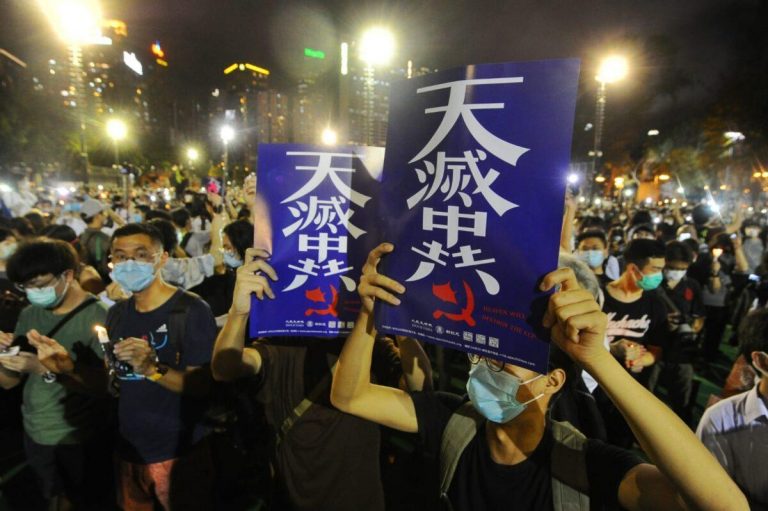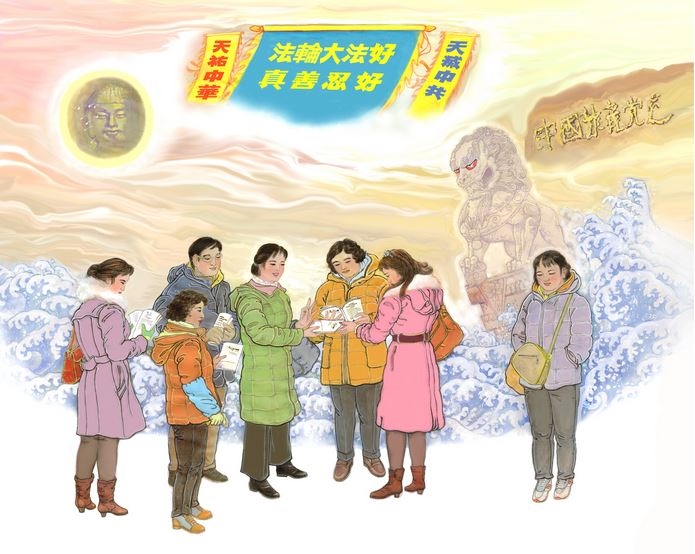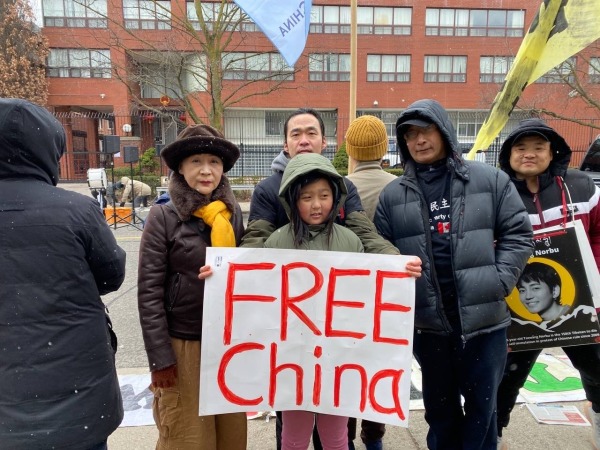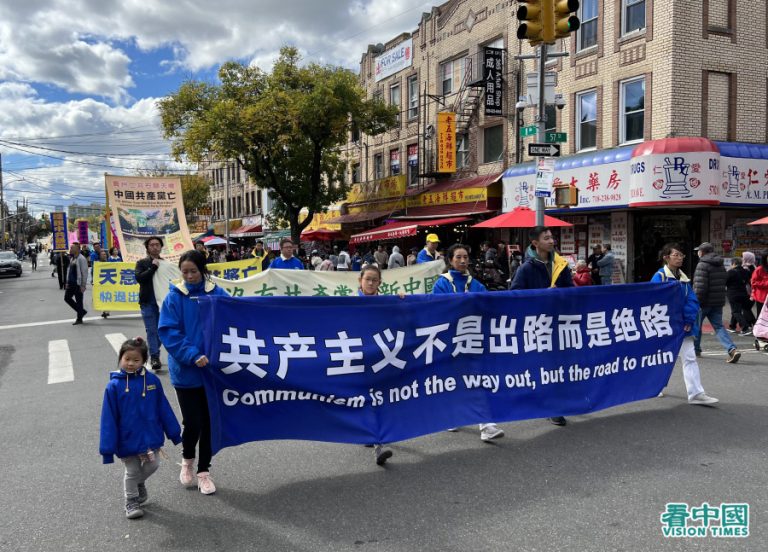Commentary
Four hundred million people have cut off ties with the Chinese Communist Party (CCP) since the beginning of the peaceful movement to tui dang (退黨) — “to quit the Party.”
The Tuidang movement started in November 2004 with the publication of the Nine Commentaries on the Communist Party, an editorial series that examines the ideological foundations and misrule of the world’s deadliest regime.
Yi Rong, president of the Global Tuidang Center based in Flushing, New York, delivered a speech at a local rally on Aug. 3, the day that the milestone was reached.
“At this moment, I am honored to offer these 400 million outstanding sons and daughters of the Chinese nation my heartfelt congratulations,” she said. “For 400 million people to stand out and withdraw from the CCP under its totalitarian dictatorship is a miracle, and it will surely inspire even more Chinese to follow suit.”
Quitting the Party
Success
You are now signed up for our newsletter
Success
Check your email to complete sign up
Tuidang is driven in large part by adherents of Falun Gong, a traditional spiritual practice that gained immense popularity in China during the 1990s, but was banned and subject to horrific persecution in 1999. Despite the Party’s efforts, which range from detention and labor camp sentences to execution by organ harvesting, a 2017 report by Freedom House estimates that 7 to 20 million people still practice Falun Gong in China.
Many Falun Gong practitioners and their supporters raise awareness not just about the CCP’s campaign against the faith, but, drawing upon the facts and conclusions laid out in the Nine Commentaries, encourage ordinary Chinese to distance themselves from the regime and its ideology. Those who choose to “quit the Party” give volunteers a real or assumed name, which is then taken and compiled on an overseas website.
One renunciation statement, dated Aug. 2, reads:
With Pelosi’s visit to Taiwan, the CCP’s fragile feelings have been shattered again … the laughable thing is that the Party is all bark and no bite, it’s been calling for the military reunification of Taiwan for 70 years … it’s really both an incompetent and evil organization. I hope Taiwan can remain steadfast in the defense of its democratic freedoms, don’t believe in “one country, two systems” or you’ll end up like Hong Kong.” — Guo Tianqi, from Wuhan, quits the Young Pioneers.
In a statement dated July 11, Zheng Xiujuan, a doctor in Linyi city of Shandong Province, described how she came to renounce her Party membership.
“While providing aid during the pandemic in Linyi, I personally witnessed the chaos in the hospital system. We frontline medical staff lacked PPE, but weren’t allowed to say anything about it even though it was clear that supplies were being misallocated. We’re also human, but the CCP failed to afford us women doctors even the slightest respect. I joined the Party a year ago, and today unequivocally declare my withdrawal from the Chinese Communist Party.”
A July 26 statement by Bo Shan, of Nanjing, expresses the author’s intent to withdraw from the Communist Youth League.
“I quit the League. There’s no freedom of the press, no freedom of speech, no independent judiciary, no multiparty system. China is not a normal country, it’s an abomination.”
Those promoting Tuidang use a variety of means, such as passing out fliers or copies of the Nine Commentaries and related literature, posting placards in public spaces, or directly talking to others. Falun Gong practitioners living outside China have also organized efforts to call people in China, sometimes even reaching out to Party officials or their staff.
Renouncing communism
Because of the difficulty and practical repercussions of formally withdrawing one’s membership in the CCP or its affiliated youth organizations — the Young Pioneers and the Communist Youth League — the Tuidang movement aims primarily at acquiring statements declaring the participant’s personal renunciation of the Party and its Marxist ideology.
While the CCP itself lists about 90 million members, nearly the entire school-age and adult populations are or have been members of the Pioneers or Youth League. All members of the Party, Pioneers, or League must make oaths dedicating themselves to the communist regime and its aims — a promise that those taking part in Tuidang annul.
The CCP was founded 101 years ago in Shanghai, and took power in China in 1949 after defeating the republican government following World War II. It’s responsible for the deaths of an estimated 80 million Chinese and a massive demographic collapse brought about by the brutal one-child policy, making it the deadliest regime in history.
While the Party today advocates a nationalist stance along with “socialist core values,” its atheist Marxist-Leninist ideology rejects the spiritual and moral foundations of traditional Chinese civilization as “feudalist superstition.”
Yi Rong urged more Chinese around the world to take the opportunity to quit the Party and live up to their country’s ancient heritage, rather than be “the descendants of Marx and Lenin.”
“As we stand at this dramatic point in history, let us prepare to welcome a genuinely new China, free of the Communist Party.”












